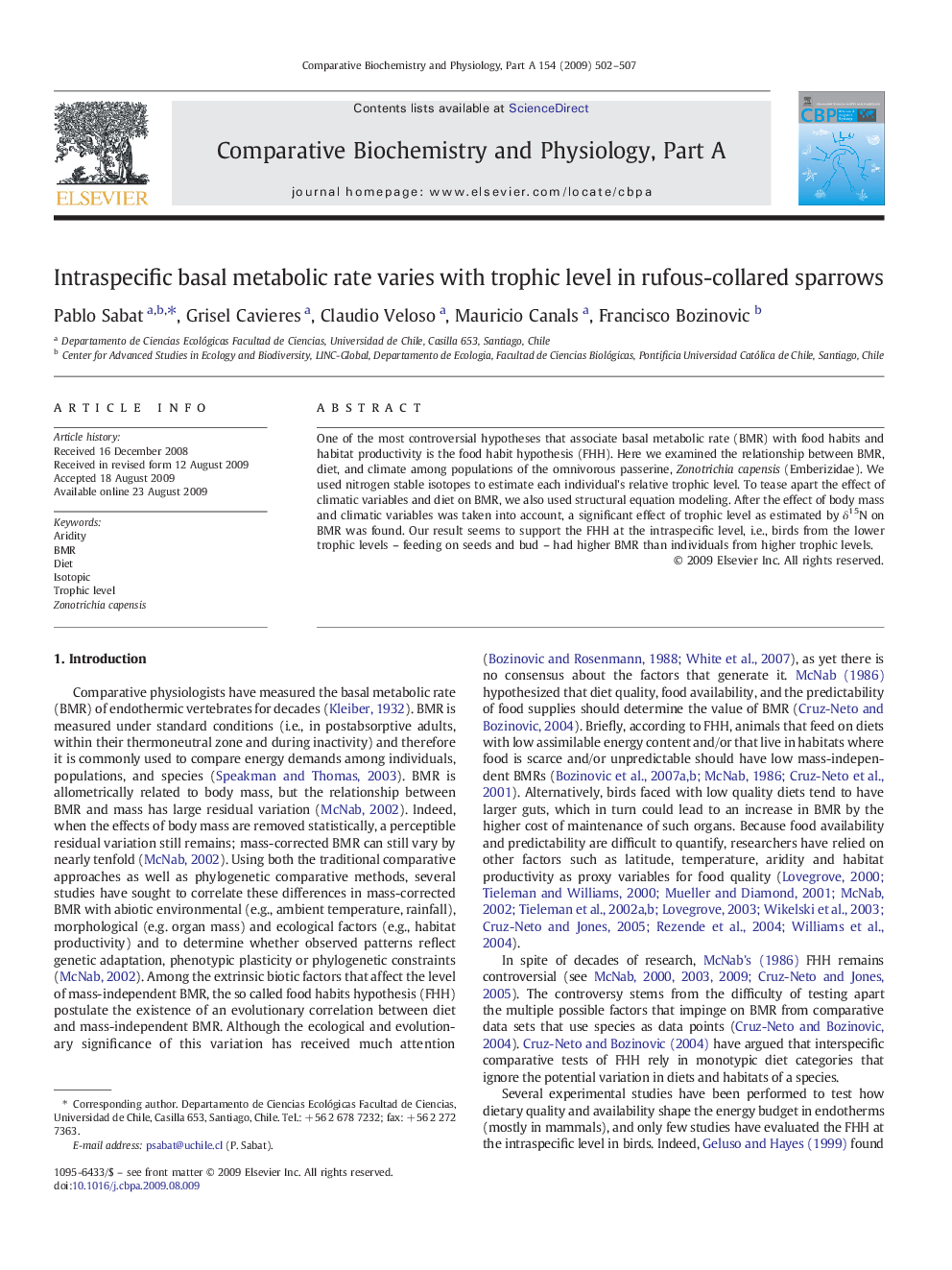| Article ID | Journal | Published Year | Pages | File Type |
|---|---|---|---|---|
| 1973181 | Comparative Biochemistry and Physiology Part A: Molecular & Integrative Physiology | 2009 | 6 Pages |
One of the most controversial hypotheses that associate basal metabolic rate (BMR) with food habits and habitat productivity is the food habit hypothesis (FHH). Here we examined the relationship between BMR, diet, and climate among populations of the omnivorous passerine, Zonotrichia capensis (Emberizidae). We used nitrogen stable isotopes to estimate each individual's relative trophic level. To tease apart the effect of climatic variables and diet on BMR, we also used structural equation modeling. After the effect of body mass and climatic variables was taken into account, a significant effect of trophic level as estimated by δ15N on BMR was found. Our result seems to support the FHH at the intraspecific level, i.e., birds from the lower trophic levels – feeding on seeds and bud – had higher BMR than individuals from higher trophic levels.
